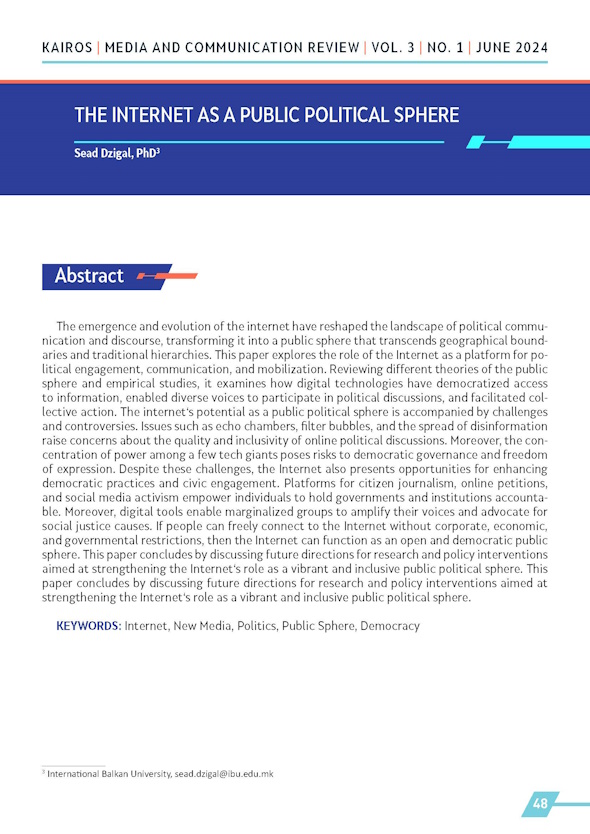
The Internet as a Public Political Sphere
Volume 3 | No 1 | June 2024
Sead Dzigal
International Balkan UniversityUDC: 004.738.5:32.019.5
Abstract
The emergence and evolution of the internet have reshaped the landscape of political communication and discourse, transforming it into a public sphere that transcends geographical boundaries and traditional hierarchies. This paper explores the role of the Internet as a platform for political engagement, communication, and mobilization. Reviewing different theories of the public sphere and empirical studies, it examines how digital technologies have democratized access to information, enabled diverse voices to participate in political discussions, and facilitated collective action. The internet's potential as a public political sphere is accompanied by challenges and controversies. Issues such as echo chambers, filter bubbles, and the spread of disinformation raise concerns about the quality and inclusivity of online political discussions. Moreover, the concentration of power among a few tech giants poses risks to democratic governance and freedom of expression.
Despite these challenges, the Internet also presents opportunities for enhancing democratic practices and civic engagement. Platforms for citizen journalism, online petitions, and social media activism empower individuals to hold governments and institutions accountable. Moreover, digital tools enable marginalized groups to amplify their voices and advocate for social justice causes. If people can freely connect to the Internet without corporate, economic, and governmental restrictions, then the Internet can function as an open and democratic public sphere. This paper concludes by discussing future directions for research and policy interventions aimed at strengthening the Internet's role as a vibrant and inclusive public political sphere. This paper concludes by discussing future directions for research and policy interventions aimed at strengthening the Internet's role as a vibrant and inclusive public political sphere.
Keywords: Internet, New Media, Politics, Public Sphere, Democracy

